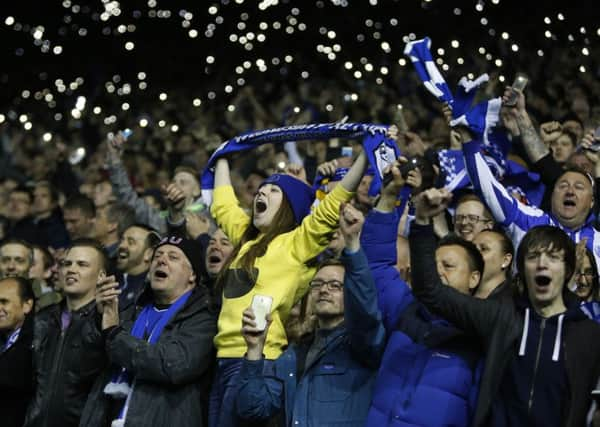Why lucrative Sheffield Wednesday play-off is more than just a game


Nearly 40,000 Sheffield Wednesday supporters are off to Wembley to see the Owls take on Hull City in the Championship play-off final on Saturday.
The winning side stands to earn as much as £170 million, according to estimates – and if the Owls win, Sheffield can expect to feel the benefits more widely as the prestige of a top-flight club bolsters the city’s reputation, particularly overseas, and money flows to hotels, shops and businesses.
Advertisement
Hide AdAdvertisement
Hide AdFootball finance expert Rob Wilson, from Sheffield Hallam University’s academy of sport and physical activity, said having a Premier League team would be ‘hugely important for the city’.
He said: “It’s been missing for far too long. Other cities – Manchester, Birmingham, cities in the North East – have been able to move forward with infrastructure and added image benefits. It’s difficult to quantify but we know there are regeneration benefits – new facilities, transport links – that will flow from the new investment that comes from having a Premier League club.
“If Sheffield Wednesday go up that would be great, and if Sheffield United could do the same thing in a few years’ time that would be even better.”
Wednesday were last in the Premier League in 2000, and United in the 2006/7 season.
Advertisement
Hide AdAdvertisement
Hide AdThe immediate benefit of promotion would go to the Owls themselves, said Rob, Hallam’s principal lecturer in sport business management.
“Every club next year will stand to earn £100m just for participating in the league. By the time you add in finishing places, additional sponsorship and other commercial revenues that amount could be £130m.
“To put it into context, it makes Sheffield Wednesday, if they were to be promoted, bigger than any club in the Dutch league.”
The figure of £130m would stand even if the side was relegated after a year, because of ‘parachute payments’ to cover the high contract values of players, Rob added.
Advertisement
Hide AdAdvertisement
Hide AdMuch of the money comes ‘almost exclusively’ from TV rights. The current broadcasting deal is worth £3.2bn over three years but, from August 1, the new agreement with Sky, BT Sport and the BBC goes up to £5.1bn.
“Every club will earn £30m more than they might do normally,” said Rob.
An additional £25m could come from new sponsorships and commercial partners.
“They can sell the shirt sponsorship for five or six times what they sold it for to Chansiri this year.”
Advertisement
Hide AdAdvertisement
Hide AdHillsborough would be ‘sold out pretty much every game’ during a Premier League season, Rob continued.
“That brings a knock-on effect for hotels, businesses, retail outlets, restaurants and bars. If there are something like 19 home games, then you are talking a £10m boost to the city economy.
“Then there are the ancillary sources of revenue – transport, and places like the university. We know having a Premier League team tends to boost international student recruitment. The league is broadcast to about 70 different countries every week, you can’t really miss it.”
But despite having a presence abroad, Rob said the market in countries such as China was ‘broadly untapped’.
Advertisement
Hide AdAdvertisement
Hide Ad“Manchester City have just signed a new rights deal with a TV company in China. With Sheffield Wednesday you would see plenty of that. In the Premier League you tend to increase your commercial partners tenfold from the Championship.
“Opportunities will be much more easy to get hold of. The commercial department’s job, in many ways, would become a lot more easy.”
Top-flight status would support Sheffield’s standing as a ‘city of sport’, he added, complementing the Olympic Legacy Park at the old Don Valley site, and increased efforts to promote Sheffield FC as the world’s oldest club.
“Perhaps we might be able to leverage that potential,” Rob said.